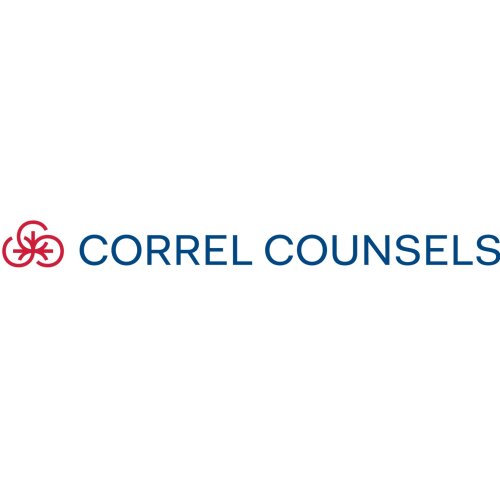Best Energy Regulatory Law Lawyers in Malé
Share your needs with us, get contacted by law firms.
Free. Takes 2 min.
List of the best lawyers in Malé, Maldives
About Energy Regulatory Law in Malé, Maldives
Energy Regulatory Law in Malé, Maldives, covers the regulations and legal frameworks that govern the production, distribution, and consumption of energy. This includes electricity, renewable energy sources like solar and wind, and guidelines for utilities operating within the city limits and across the islands. Overseen by national and local authorities, these laws aim to ensure efficient energy use, consumer protection, fair pricing, sustainable development, and compliance with environmental standards in Malé. As the Maldives moves toward more renewable energy solutions, legal compliance in energy investments and projects is increasingly complex.
Why You May Need a Lawyer
Navigating Energy Regulatory Law in Malé can be challenging given the technicalities of energy projects and the evolving nature of Maldivian law. You may need legal advice or representation if you are:
- Building or upgrading energy infrastructure such as solar or wind farms
- Negotiating power purchase agreements or supply contracts
- Applying for or seeking clarification on licenses and permits to generate or distribute energy
- Dealing with disputes involving energy providers or regulatory authorities
- Addressing alleged violations of energy or environmental regulations
- Investing in or financing energy projects
- Introducing new technology or engaging in public-private partnerships
Local Laws Overview
Energy Regulatory Law in Malé is influenced by several local and national statutes and regulations. Key aspects include:
- Licensing: The Maldives Energy Authority (MEA) controls the issuance of licenses to energy producers and distributors to ensure safety and reliability.
- Tariff Regulations: Energy pricing is regulated to protect consumers and incentivize fair competition and sustainable development.
- Renewable Energy Policies: Strong government encouragement exists for renewable energy projects, including subsidies, tax incentives, and specific guidelines for solar and wind implementations.
- Environmental Compliance: All energy projects must comply with Environment Impact Assessment (EIA) requirements to minimize harm to the fragile island ecosystem.
- Consumer Rights: Regulations protect energy consumers from unfair practices, including service interruptions and billing disputes.
- Investment and Foreign Participation: Rules exist concerning foreign investment in energy, joint ventures, and public-private partnerships, each with their approval processes and restrictions.
Frequently Asked Questions
What is the main body regulating energy in Malé, Maldives?
The Maldives Energy Authority (MEA) regulates the energy sector, overseeing licensing, compliance, and enforcement of standards in Malé and nationwide.
Do I need a license to generate solar power for my business or residence?
Yes, a license from the MEA is usually required for any generation beyond personal, small-scale use. Exporting energy to the national grid or commercial sale mandates compliance and licensing.
How are electricity tariffs set in Malé?
Tariffs are established in accordance with government policies and regulations, taking into account production costs, infrastructure, and subsidies, with oversight by the MEA.
What legal protections exist for energy consumers?
Consumers are protected against unfair billing, service interruptions, and unsafe energy services through regulations enforced by the MEA and consumer protection agencies.
What are the environmental compliance requirements for energy projects?
All significant energy projects require an Environment Impact Assessment (EIA) and approval from the Environmental Protection Agency, ensuring minimal harm to the environment.
Can foreign investors participate in energy projects in Malé?
Yes, foreign investment is allowed, but regulatory approval and compliance with the Foreign Investment Act and MEA guidelines are necessary.
How can I resolve a dispute with my energy provider?
Disputes can be settled through negotiation, mediation, or formal legal proceedings. The MEA and Consumer Protection Commission offer mediation, but court intervention is possible if those routes fail.
What incentives are available for renewable energy in Malé?
There are various incentives, including tax benefits, subsidies, and grants for qualified projects, particularly those supporting national renewable energy goals.
How can I apply for an energy project license?
Submit an application to the MEA along with technical, financial, and environmental documentation. Legal counsel can guide you through the paperwork and procedural requirements.
What penalties exist for violating energy regulations?
Penalties can include fines, license suspension or revocation, and, in serious cases, criminal liability. Remedial actions may also be required by the authorities.
Additional Resources
Several agencies and organizations provide guidance and information for those involved in Energy Regulatory Law in Malé:
- Maldives Energy Authority (MEA): Main regulator for all energy-related activities.
- Ministry of Environment, Climate Change and Technology: Oversees policy, environmental compliance, and promotion of renewable energy.
- Environmental Protection Agency (EPA): Handles environmental impact assessments and project approvals.
- Consumer Protection Commission: Addresses consumer complaints and dispute resolution.
- Maldives Law Society: Offers directories and resources for finding qualified energy law specialists.
Next Steps
If you require legal assistance in Energy Regulatory Law in Malé:
- Identify the nature of your legal issue, such as licensing, compliance, disputes, or contracts.
- Gather all relevant documents, such as permits, correspondence, and project plans.
- Consult with a lawyer who specializes in energy or regulatory law in the Maldives. An initial consultation can clarify your legal standing and recommend strategies.
- Contact the appropriate regulatory body or seek further information from government agencies.
- Stay informed about updates in national energy legislation, which can have direct impacts on your obligations and opportunities.
Lawzana helps you find the best lawyers and law firms in Malé through a curated and pre-screened list of qualified legal professionals. Our platform offers rankings and detailed profiles of attorneys and law firms, allowing you to compare based on practice areas, including Energy Regulatory Law, experience, and client feedback.
Each profile includes a description of the firm's areas of practice, client reviews, team members and partners, year of establishment, spoken languages, office locations, contact information, social media presence, and any published articles or resources. Most firms on our platform speak English and are experienced in both local and international legal matters.
Get a quote from top-rated law firms in Malé, Maldives — quickly, securely, and without unnecessary hassle.
Disclaimer:
The information provided on this page is for general informational purposes only and does not constitute legal advice. While we strive to ensure the accuracy and relevance of the content, legal information may change over time, and interpretations of the law can vary. You should always consult with a qualified legal professional for advice specific to your situation.
We disclaim all liability for actions taken or not taken based on the content of this page. If you believe any information is incorrect or outdated, please contact us, and we will review and update it where appropriate.
















